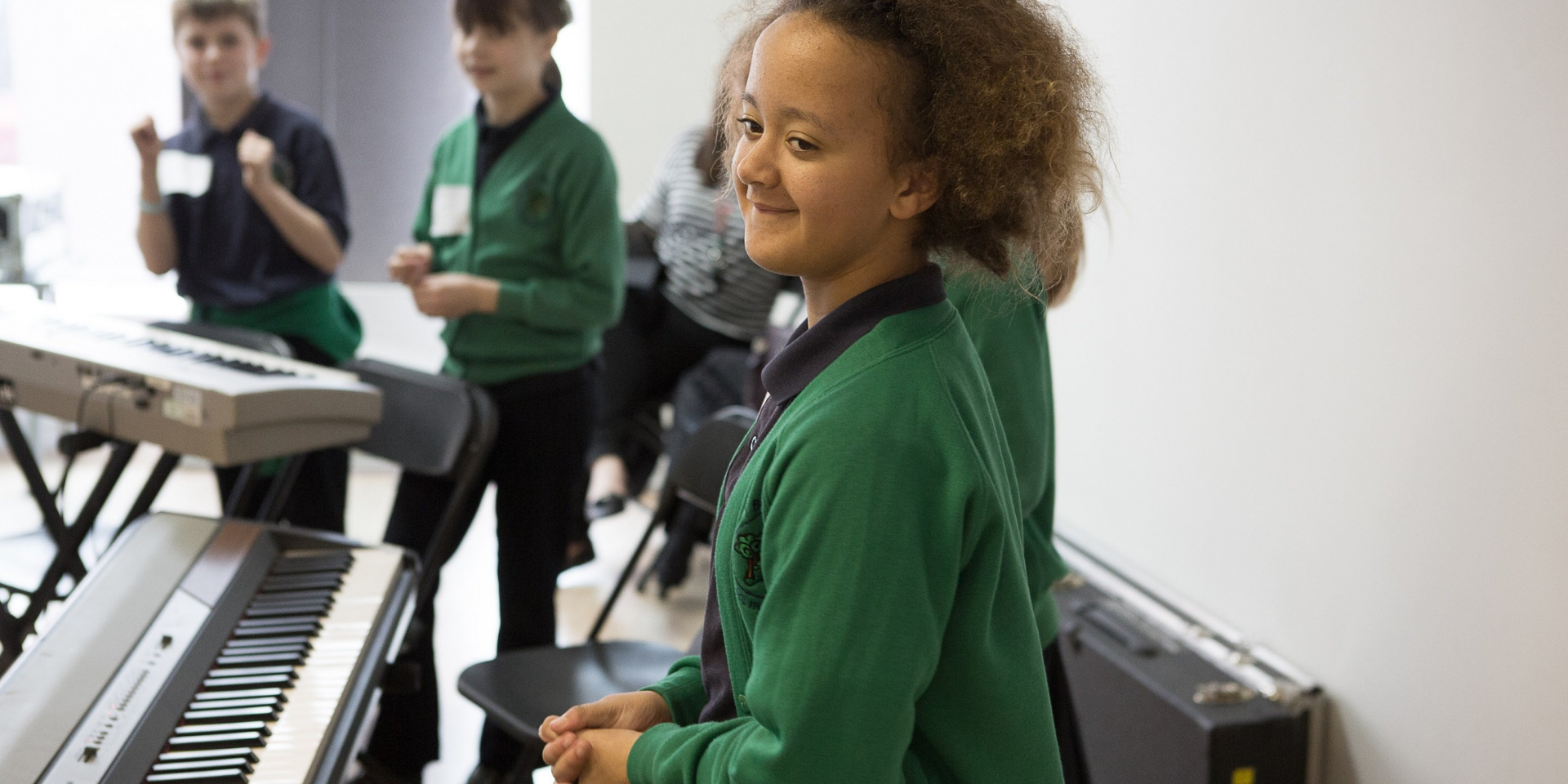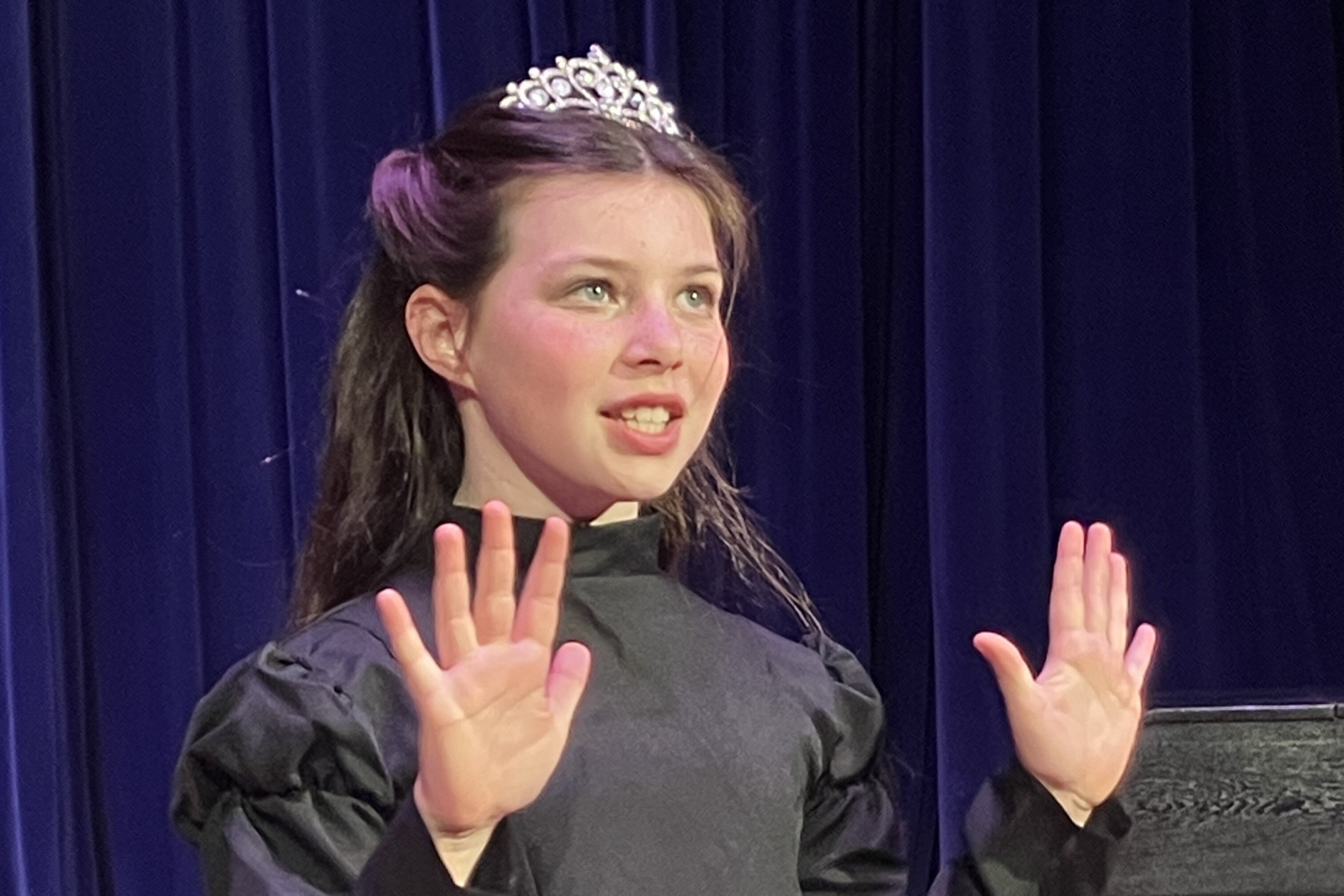%20(1)-2.jpg)
Rock & Pop in a Primary setting

BY: Toby Davies
01 June 2022
There are many ways in which the Trinity Rock & Pop syllabus resources can be adapted and utilised to enable the delivery of the music curriculum in a primary school setting. Toby Davies, UK & Ireland National Development Manager for Rock & Pop, explores how you can use Trinity’s Rock & Pop resources in the primary classroom – for both music specialists and classroom teachers.
Trinity’s Rock & Pop syllabuses and resources have been created to focus instruments most commonly found within those genres (electric guitar, bass, drums, keyboard and vocals); however, they can also be adapted in order to be used for different purposes when delivering music tuition to a group setting. For example, our Drum syllabus can be used to focus upon rhythm and rhythmical notation; the vocal syllabus repertoire can be used for small group vocals and whole school singing; whilst the keyboard syllabus provides a good resource for ensemble work which could lead to the formation of bands and further group work or performances. Alongside the learning regarding specific instruments, the syllabus incorporates further musical skills, such as the understanding of dynamics and increasing understanding of musical terminology.
Developing early rhythm and pulse
The Drums syllabus is a great platform to start teaching rhythm and rhythmical notation. The early grades are based around basic crotchet and quaver patterns which are split across various sections of the drumkit and put together to create a variety of grooves. Each groove is built upon using three parts of a drum kit, which can be transferred to three areas of body percussion, three different tones on a Djembe, or even as basic as drumsticks (wooden spoons, or any other sticks you might have available) on the back of a chair or simple percussion instruments. Once the children have a basic understanding of crotchets and quavers, you can start to build these grooves up, either to build patterns or to learn and perform complete songs. All of the pieces on Trinity’s Rock & Pop syllabuses come with backing tracks, which can be used as accompaniment to the grooves which the children learn.
Supporting singing
We also have an extremely varied Vocals syllabus, which encompasses a broad spectrum of musical styles. The arrangements can be used across a wide variety of vocal activities within the primary setting, whether you are working with small groups, class teaching or any variety of assembly singing. Again, the backing tracks offer support to all of these scenarios, giving the children the opportunity to perform and sing to iconic hit tracks.
Understanding notation and group music making
Our Keyboards syllabus provides, not only the keyboard part of the song, but also the root chords, as well as the vocal line. All of these can be used to support the development of small band workshops, offering the opportunity for children to start developing the holistic skills and musicianship to work as a group of musicians together, which could lead to a final performance or sharing for parents and carers. Not only will children hopefully develop a love of music making, but working together in a group can build confidence, support teamwork and communication, and be an excellent way to help develop home and school links.
What makes Trinity Rock & Pop unique?
There are so many ways in which the Trinity Rock & Pop syllabus resources can be utilised. For me, the main and most exciting aspect of this syllabus is, and has always been, that we offer real songs, by real artists – music that learners find relatable, exciting and accessible. It offers the building blocks to becoming an independent musician with the flexibility and skills to adapt, work together and perform within a group of musicians. In my role at Trinity, I am passionate about supporting the next generation of musicians and am always excited about what will come next and hear what music the new generation will produce.
Find out more
We have a range of events and resources coming up which will explore some of these themes further. Make sure you check out This is Trinity as our month of June focusses on Primary Music Making in all forms!
Our upcoming Networking Event exploring Singing in the Primary Classroom is not to be missed, as is our webinar, co-hosted with leading music education organisation, Charanga. We hope you can join us!




Comments & Replies